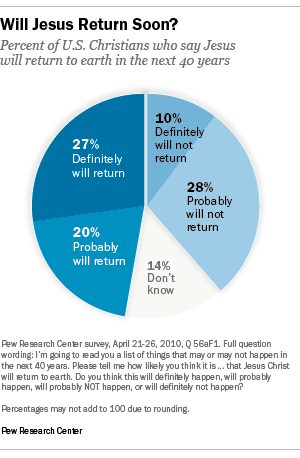Human nature has always wanted to believe in a greater force that monitors the universe and provides meaning to individual lives. People desire reasons for everyday occurrences like suffering, death, and ultimately the choices in life that God has served as a constant motivator throughout modern history. Out of all world religions, Christianity remains the largest ranked religion with an estimated 2.18 billion Christians globally. In the United States, about 79.5 percent (247 million) of adults identify as Christian, but these numbers are beginning to slowly decline with shrinking mass attendances, holidays like Christmas and Easter losing their religious significance, and the progression of religious tolerance and experimentation taking place.

Although considered the quintessential religious holidays for Christians, Christmas and Easter are also losing their religious meaning for those who celebrate. According to a 2010 Pew Research survey 38 percent of Americans felt that in relation to Easter Christ will not return to Earth to lead a spiritual insurgency. Conversely, 48 percent believe that Christ will return at some point during human history. The Pew research is supported by a similar survey conducted by the Barna Group in 2010, which found that fewer than half of Americans mentioned Jesus’ death and resurrection when asked about the significance of Easter. A report conducted by the National Retail Federation confirms this claim and found that more than $13 billion is spent on Easter consumer goods. With the rise of capitalism and consumerism surrounding these holidays, the spiritual narrative has been abandoned and has shifted towards a celebration revolved around greeting cards, candy, presents, and fictional characters, like Santa Claus and the Easter Bunny.

Ecclesiastes 1:18 states, “For with much wisdom come much sorrow; the more knowledge, the more grief.” This spiritual statement correlates with the steady decline of Christian Americans. Consumerism, religious awareness, and tolerance have drastically shifted the importance of a religious life in modern-day American society. Knowledge of other religions and the inkling towards a technological revolution has morphed the meaning of a spiritual life. This evolution in spiritual understanding has the majority of Americans thinking more openly about the possibilities within the universe.
